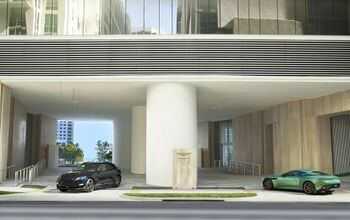Obama Transportation Appointees Like Speed Cameras, Tolls
Candidate Barack Obama made few concrete statements on the subject of transportation during the 2008 campaign. Now that his cabinet has been sworn into office, President Obama has turned his attention to filling the lower-level positions that are frequently responsible for making major policy decisions. At the US Department of Transportation, these new appointees all share a love for speed cameras and toll roads—especially Transportation Secretary Ray LaHood’s new number two man. “With great pleasure I want to bid a hearty welcome aboard to our new Deputy Secretary, John Porcari,” LaHood wrote yesterday. “And, though he’s been on duty less than a week, he already has done some heavy lifting for us.”
As late as April, Porcari was out defending the successful passage of legislation allowing speed cameras in “work zones” that have no workers. The legislature, however, opted for a significantly reduced fine from Porcari’s original proposal.
“Marylanders will be safer traveling our highways thanks to legislation authorizing speed cameras in construction work zones,” Porcari wrote in a letter to the Baltimore Sun newspaper. “And with clear signs offering advance warning of speed cameras, this will not be a matter of ‘gotcha.'”
Like his new boss, Porcari is also a major fan of imposing tolls on roads. So too is the newly confirmed Undersecretary for Transportation Policy, Roy Kienitz, 46. Kienitz was formerly the Deputy Chief of Staff for Pennsylvania Governor Ed Rendell (D) with responsibility over transportation issues.
Rendell credited Kienitz for the state legislation that would have allowed the imposition of tolls on Interstate 80 and sold the Pennsylvania Turnpike to a foreign toll road consortium. Both plans ultimately failed. Kienitz is also a board member for “Building America’s Future,” a group that lobbies on behalf of government officials to promote toll roads as infrastructure projects.
Such projects were what Peter H. Appel, 44, worked on for the consulting firm A.T. Kearney. The Senate confirmed Appel as Administrator of the DOT’s Research and Innovative Technology Administration on April 29. Appel’s former firm is one of many that stands to profit from the twenty-two percent overhead cost added to every tolling project.
“A.T. Kearney has a broad transportation client base, including railroads, airlines and airports, shipping lines, ports, motor carriers and toll roads,” the company explained in a summary of the areas in which it does business.
President Obama has also nominated Victor M. Mendez to be Administrator of Federal Highway Administration. Mendez, who awaits confirmation, was most recently the Director of the Arizona Department of Transportation where he coordinated state agencies and interest groups for the roll out of the state’s freeway speed camera program.
More by The Newspaper
Latest Car Reviews
Read moreLatest Product Reviews
Read moreRecent Comments
- Corey Lewis It's not competitive against others in the class, as my review discussed. https://www.thetruthaboutcars.com/cars/chevrolet/rental-review-the-2023-chevrolet-malibu-last-domestic-midsize-standing-44502760
- Turbo Is Black Magic My wife had one of these back in 06, did a ton of work to it… supercharger, full exhaust, full suspension.. it was a blast to drive even though it was still hilariously slow. Great for drive in nights, open the hatch fold the seats flat and just relax.Also this thing is a great example of how far we have come in crash safety even since just 2005… go look at these old crash tests now and I cringe at what a modern electric tank would do to this thing.
- MaintenanceCosts Whenever the topic of the xB comes up…Me: "The style is fun. The combination of the box shape and the aggressive detailing is very JDM."Wife: "Those are ghetto."Me: "They're smaller than a Corolla outside and have the space of a RAV4 inside."Wife: "Those are ghetto."Me: "They're kind of fun to drive with a stick."Wife: "Those are ghetto."It's one of a few cars (including its fellow box, the Ford Flex) on which we will just never see eye to eye.
- Oberkanone The alternative is a more expensive SUV. Yes, it will be missed.
- Ajla I did like this one.


































Comments
Join the conversation